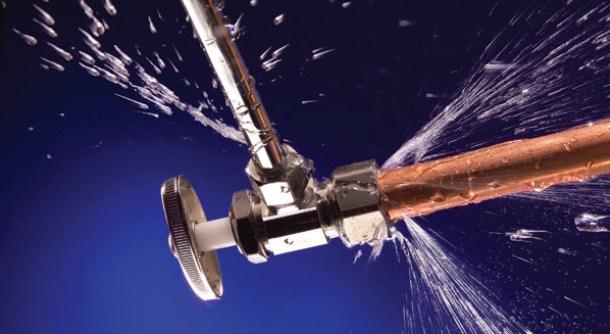Insurance BlogFriday, April 14 2017
Plumbing fixture failures and faulty installations are a leading cause of interior water damage in homes and businesses. Even in the warmer months, when frozen pipes are not a threat, costly losses can arise from what would appear to be simple plumbing problems. Minor leaks and clogs should be taken care of properly as they may be signs of more serious issues. If a pipe, appliance, hose, or fixture contains running water, it needs to be properly maintained to prevent any water related losses. The list below contains the places where failures are most likely going to happen if not kept in working order. Toilets Clogs and overflowing toilets made up 33% of all toilet failures that led to water damage. The valves and flushing mechanism of every toilet in your building should be inspected every six months to ensure they are working and show no signs of wear. The shut off valve should be easy to turn and the supply line should be able to be turned off as well. Drains & Pipes Banging pipes, increased water bills, rust stains, and moisture on walls and floors are all signs of plumbing and drain problems. Keep drains and pipes clear of obstructions, and never pour grease down a drain. Have a backflow prevention system installed in your sewer connection if your home or business is located downhill or below street level. For an extra security measure, have a house leak detection system installed. Washing Machines Failure of the hose which supplies water to a washing machine is a leading cause of water damage. The hose should be replaced if there are cracks or blisters, and/or if the tubing appears worn. This should be done every five years or when the situation merits. If you are planning on vacating the building for a long period of time, turn off the water supply valves. When doing the laundry, do not overload machines and only use detergents designed for this type of use. Water Heaters Like any piece of equipment, age is an important factor in the odds of a mechanical failure. Even with proper maintenance, water heaters need to be replaced after they reach their life expectancy (typically around 10 years – check your manufacturer for model-specific information). In addition, water heaters should be inspected by a plumber every year for broken valves, loose joints, and rust. |




